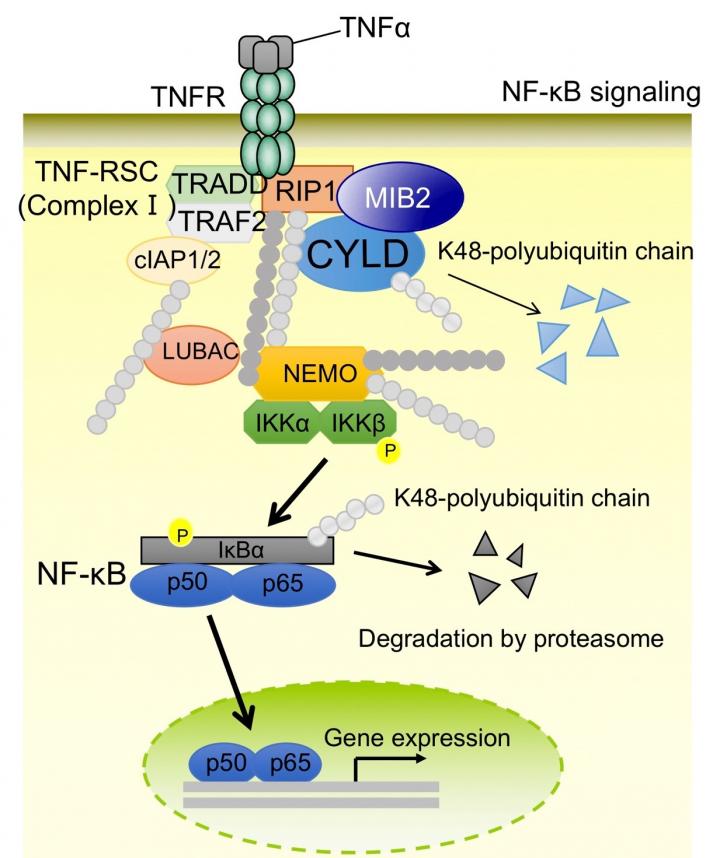E3 ubiquitin ligase MIB2 enhances inflammation by degrading the deubiquitinating enzyme CYLD

Credit: Ehime University
The tumor suppressor CYLD lysine 63 deubiquitinase (CYLD) is a deubiquitinating enzyme that suppresses polyubiquitin-dependent signaling pathways, including the proinflammatory and cell growth-promoting NF-κB pathway. Missense mutations in the CYLD gene are present in individuals with syndromes such as multiple familial trichoepithelioma (MFT), but the pathogenic roles of these mutations remain unclear.
Recent studies have shown that CYLD interacts with a RING finger domain protein, mind bomb homologue 2 (MIB2), in the regulation of NOTCH signaling. However, whether or not MIB2 is an E3 ubiquitin ligase that acts on CYLD is unknown. Here, using the cell-free based AlphaScreen and pulldown assays to detect protein-protein interactions, along with immunofluorescence assays and murine Mib2-knockout cells and animals, we demonstrate that MIB2 promotes proteasomal degradation of CYLD and enhances NF-κB signaling.
Of note, arthritic inflammation was suppressed in Mib2-deficient mice. We further observed that the ankyrin repeat in MIB2 interacts with the third CAP domain in CYLD and that MIB2 catalyzes Lys48-linked polyubiquitination of CYLD at Lys-338 and Lys-530. MIB2-dependent CYLD degradation activated NF-κB signaling via tumor necrosis factor alpha (TNF-α) stimulation and the linear ubiquitination assembly complex (LUBAC). Mib2-knockout mice had reduced serum interleukin-6 (IL-6) and exhibited suppressed inflammatory responses in the K/BxN serum-transfer arthritis model.
Interestingly, MIB2 significantly enhanced the degradation of a CYLDP904L variant identified in an individual with MFT, although the molecular pathogenesis of the disease was not clarified here. Together, these results suggest that MIB2 enhances NF-κB signaling in inflammation by promoting the ubiquitin-dependent degradation of CYLD.
###
Media Contact
Public Relations Division
[email protected]
Related Journal Article
http://dx.




